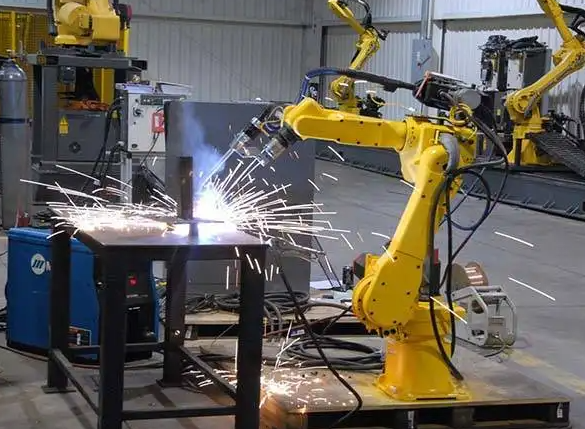As a revolutionary metal processing method, laser welding technology is increasingly attracting attention and favor from various industries. Its high precision, high efficiency and non-pollution characteristics make it have broad application prospects in aerospace, automobile manufacturing, electronic equipment, medical equipment and other fields. This article will deeply explore the advantages and future development prospects of laser welding technology, and present readers with a comprehensive and detailed review of laser welding technology.
Laser welding technology, with its unique optical principles and precise welding control, achieves a contactless, high-energy-density, high-speed welding process.
First, its high accuracy becomes one of its most important advantages.
Laser can achieve micron-level welding precision, making welded joints stronger and more corrosion-resistant, thereby meeting the strict requirements of modern industry for welding quality. Secondly, the concentration of laser energy makes the heat-affected zone in the welding process area very small, reducing defects caused by weld deformation and thermal stress, and improving the reliability and stability of welding. In addition, laser welding also has the advantages of high efficiency, high speed, and no pollution, which can greatly improve production efficiency and reduce production costs.
Laser welding technology has broad application prospects in the aerospace field.
The aerospace field has extremely high requirements for welding quality, and the high precision and deformation-free characteristics of laser welding technology make it the best choice. Through laser welding, high-precision welding of complex-shaped parts can be achieved, while reducing the use of excess materials and molds in the welding process, thereby improving production efficiency. In addition, laser welding can also be used in the manufacturing and maintenance of aerospace engines, enabling high-quality welding of high-temperature alloys and improving the reliability and life of the engine.
The automobile manufacturing industry is also an important application field of laser welding technology.
Laser welding technology can be used for welding automobile parts, such as body welding, engine welding, etc. Through laser welding, finer joint welding can be achieved, improving the rigidity and safety of the car body. Compared with traditional welding methods, laser welding can weld different materials, and mixed welding of multiple materials can also produce good weld quality, improving the flexibility and reliability of automobile manufacturing.
The demand for laser welding technology in the electronic equipment industry is also increasing.
Laser welding enables high-precision welding of tiny devices, bringing together disparate components and improving the performance and durability of electronic devices. Especially in the manufacturing of small electronic products such as mobile phones and tablet computers, laser welding technology can achieve micron-level connections, improving product reliability and stability.
The medical device industry is also a potential market for laser welding technology.
Laser welding technology can connect instruments of different materials to achieve high-precision and high-strength welding. In medical device manufacturing, welding quality is crucial to product safety and reliability. Laser welding technology can meet this demand and provide strong support for the development of the medical device industry.
In the future, with the continuous innovation and development of laser technology, laser welding technology is expected to be further improved.
For example, laser welding control systems based on artificial intelligence and machine learning can achieve higher-precision welding and improve production efficiency and product quality. At the same time, continuous breakthroughs in laser material processing technology have also provided broader application fields and higher development space for laser welding technology.
All in all, laser welding technology has broad application prospects in aerospace, automobile manufacturing, electronic equipment, medical equipment and other industries due to its advantages of high precision, high efficiency and no pollution. With the continuous development of laser technology, laser welding technology is expected to be further improved and innovated, providing more possibilities and opportunities for the development of different industries.


